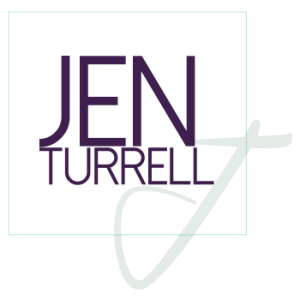Today is about investing for beginners, and I include myself in that, because although I have had investment accounts for my retirement for some time, I still consider myself a beginner when it comes to investing.
You can listen in or read below and Tweet it out here
Here’s how I see it. For the simple fact of interest rates and inflation, unless we’re investing something for the future in some way, we’re really losing our buying power year by year as we go through life. Because of that, I do think that having an amount of money in tax advantaged investment accounts of some kind is really important for everyone’s future.
I’ve never had the kinds of jobs that were attached to 401ks or included employee investment plans, so I didn’t actually start saving for my retirement until I was 30. When I was 30 I put on my list a ‘to do’ that said, “open IRA”. It sat there for most of a year because I just wasn’t sure what to do. I got on the internet, I read a few books, I searched around and I was overwhelmed with analysis paralysis.
I kept thinking,
I need to learn more!
The problem with that is while it is good to learn more and good to get an idea of
- What you want to invest in
- What’s important to you and
- Why you want to do it
there’s also a point where you just need to get started. I’m so happy that nowadays we have some new platforms we can look at to do just that.
The truth is, with losing money over time to inflation and to interest in terms of credit cards and so on, we need to counteract that with getting some gains somewhere. My advice – and I am not a financial planner or a CPA, which means I’m not going to tell you to buy any particular stocks – is to open an IRA.
Your two basic kinds of IRA accounts are the traditional IRA and the Roth IRA. If you go to somewhere like Vanguard – which I do personally like and recommend – you can open either a Roth or a traditional IRA account.
OK, So What’s The Difference?
Short answer? The difference between the two is the way that tax is figured out and also the income cap.
Roth IRA
With a Roth IRA you use after tax dollars, meaning you pay taxes first, but you invest that after tax money and it goes completely tax free, and you can take out as much money as you need on the other end without paying any more taxes on that.
That’s really exciting when you look at the idea that taxes tend to go up rather than down, and also if you look at the idea that nowadays part of lot of people’s retirement plan is to continue to have some kind of ongoing income throughout their life, either through investment properties or ongoing residual income.
A lot of us look into the future and it looks a little grim in terms of being able to retire in the way that we used to think of retirement, and by that I mean sitting on a beach somewhere or golfing or just having enough money to not need any supplemental income in our old age.
Saving the amount of principal that we need to live off for the extended lifespan that we all now have is pretty daunting.
If you think you will have some kind of ongoing income, there will still be some income tax in your old age. If you can offset some of that with a Roth IRA, it’s a great idea.
Traditional IRA
The other kind of IRA is a traditional IRA which means that you save on taxes right now.
You put money in there and it saves you on your tax bill this year which is pretty exciting if you need those tax savings. What it also means is that on the other end you will be paying taxes as you take money out.
You’ll have taxes on your gains and because you put in money pre-tax, you will also have taxes on the money you originally put in. It’s a tax advantaged wrapper, and within that wrapper you can then invest in all kinds of different things.
Income Caps
Another difference between the two different types of IRAs is that Roth IRAs do have income caps both for individuals and couples, so it is worth checking out each year what that cap is. It changes year by year like the amount you can invest and I believe it was around $5500 last year.
We have actually switched to doing a solo 401k for ourselves now because we’re able to contribute both as employer and employee, but again that’s slightly more advanced once you’ve been doing it for a while and you are, like us, trying to make up for some lost time of not contributing when I was younger.
Where To Begin
For beginners, if you’ve done nothing in the past, I totally recommend looking at a low fee index fund which Vanguard has lots of. Other companies do as well, but I tend to recommend Vanguard because it’s very simple, they were the first passively managed index funds that existed, and they’ve continued to do a really good job. They also run the business as a non-profit, which means that they are not paying third party fees.
All of the funds that you buy from Vanguard are Vanguard funds, there are no kickbacks for them selling more expensive products and it’s very straightforward and simple. I like the interface, the website’s easy to understand and you can always call or chat and get information from somebody there.
However, in order to start with somewhere like Vanguard, you do usually need a thousand dollar minimum. It’s great if you can max out your contribution every year which will change slightly year by year.
For self-employed people there are also a few other options like SEPs and solo Roth IRAs that you can look at as well.
For beginners I’m going to move onto these new platforms where you don’t need to have as much as a thousand dollars saved up to get started. Two of my favorites are Betterment and Acorns.
Betterment does allow you still to use this tax advantaged wrapper, so if you want to start an account and have it as an IRA, you can do that with very small amounts of money, such a ten dollar a month recurring transfer from your checking or savings account. The more you put in, the better and the more you’ll get set aside over time, but there is no minimum.
Acorns does not have IRAs at this time, however the Acorns strategy is to round up from your purchases. You hook up the Acorns account to a checking account that you’re already making purchases out of, and if you buy something for two dollars and 50 cents, it will grab that 50 cents leftover, make your purchase three dollars, and that 50 cents is going to go into the account where it can be invested. Cool, right?
Once it’s In, it’s In
With all of these options, these are not things that you want to put money into that you’re going to need in the short term, especially for the retirement accounts, the IRAs. Putting money in there means it’s staying in there. If you pull it out early, there are tax consequences, there are fees, it’s much worse than putting it into a savings account and pulling it back out.
So you need to be serious about your commitment to leaving this money alone, and even in Acorns – which does not have the tax advantages or the tax consequences for pulling it out – there are trading fees involved. This is investing, this is not just savings.
You will get the advantages of investing by having higher returns than a savings account, but it also means that there are some fees involved, particularly if you put money in and pull it out within a year.
There are slightly different tax consequences to different types of trading when it comes to investing. Because so many people do this sort of day trading where they’re really quickly buying and selling different things, that has different tax consequences than the buy and hold. If you buy and hold for more than a year, you’re taxed at a different year than if you buy and sell within the same year.
My Advice
My advice to anyone looking at all of these things is that this is money for your future.
This is you buying yourself some nice things and some security in your old age.
This is something your future self will definitely thank you for! Look into this really seriously. I’m going to leave it at just these first three companies that I talked about because I think that’s a really good start. Take a look at Vanguard, take a look at Betterment and take a look at Acorns and see what you think.
How You Can Get The Minimum Investment More Quickly
If you want some time to save up towards a Vanguard account and are having trouble getting that thousand dollars together, another great option that I want to bring up is Digit. I talked about this before in an episode on savings and I was just looking at my own Digit account again the other day and I am really impressed with how much they have been able to pull out of my accounts without really feeling much pain from it.
I can see the transfers go out, but it’s not been large amounts and it built up pretty quickly. I have about three thousand dollars in there from last summer and it’s worked really well.
If you want to save up enough to get a Vanguard account instead of going with Betterment or Acorns, you can open a Digit account (this is my invite a friend account, so if you use it and open an account we’ll both get a little gift!).
It studies your spending habits, and decides when to pull out these small amounts. It does have an overdraft guarantee, so there’s a little bit of extra added security, plus it can get you to that thousand dollars where you can start really investing more towards the future.
Over To You
I hope that this will encourage you to start saving towards the future, especially if you can do a tax advantaged account. Sometimes people are really surprised by how much they save in taxes by putting away money into their funds. It’s not a one for one, or anything, it’s not like you get ten thousand dollars off your tax bill by putting ten thousand dollars into a tax advantaged savings account, but it might be more like you get 7500 off your tax bill by putting ten or 11 thousand into this savings account.
You don’t have it to spend now, it’s money coming out of what you make this year, but you have it for the future, and you’re going to want that in the future.
I highly recommend that you sit down, take a look at this, think about your retirement accounts and think about what your goals are, how much you want to have. There are some great calculators for this at bankrate.com, and Vanguard has their own calculators as well.
You can put in how much you want to have available to you and see what kind of accumulation you’ll need to get in terms of principal to live off that amount in retirement. You can compare that with social security income, you can pair that with other streams of income if you have any or are planning any, but it’s great to take a look and think about what kind of lifestyle you want in your old age.
None of us want to be very old and very broke, so this is the time to think about it right now. Tweet That!
Thank you so much for listening.
If you enjoyed this episode you can subscribe to Financial Fluency here at iTunes.
Mastering Money Matters
What if managing your money and feeling wealthy was easy?
Imagine going from feeling sick to your stomach every time you have to pay a bill, to having a system that pays all of your bills on time, and shows you at a glance where all of your money is and where it is going.
Mastering Money Matters will show you a new way of looking at your finances so you can set up your systems, enjoy your money, and stop worrying about your next bill.
If you’ve been desperately avoiding looking at your finances and hoping it all just magically works out – money comes in, it doesn’t run out, and you have enough for a bit of extra spending – enroll in Mastering Money Matters today.

 Bushra Azhar is a Persuasion Strategist and Founder of The Persuasion Revolution: The only place on the Internet that makes persuasion sexy, classy & fun!
Bushra Azhar is a Persuasion Strategist and Founder of The Persuasion Revolution: The only place on the Internet that makes persuasion sexy, classy & fun!
